It’s virtually unanimous that Cushing’s patients get past the immediacy of diagnosis and treatment and look back on the process and think “I really wish I would have / would have known….” about pieces of their journey that were particularly difficult in the moment. There are parts of the post-treatment “new normal” that only a patient – an expert in their disease – would know. This article was created by ten patients who want to share their experiences with others who may not have thought about these possibilities before. Above all else, we’d like to encourage you to be your own best advocate and health management team member.
A little about the contributors:
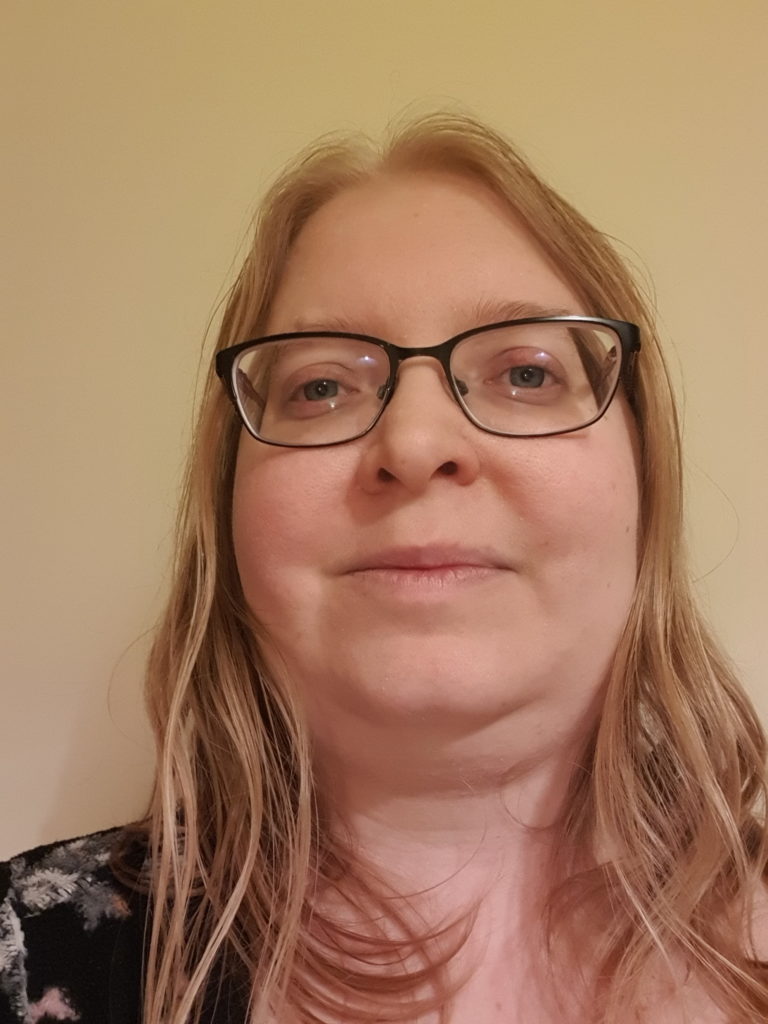
CB: Caz Brown from England is in her mid-30s and began to experience symptoms about five years ago. She was officially diagnosed in December 2018, but the tumor was not identified at that time so she was on medical therapy while waiting for a positive MRI. Her ENT surgeon ordered another MRI in late 2019, decided to move forward with surgery, and Caz has been in remission for four months as of February 2020.
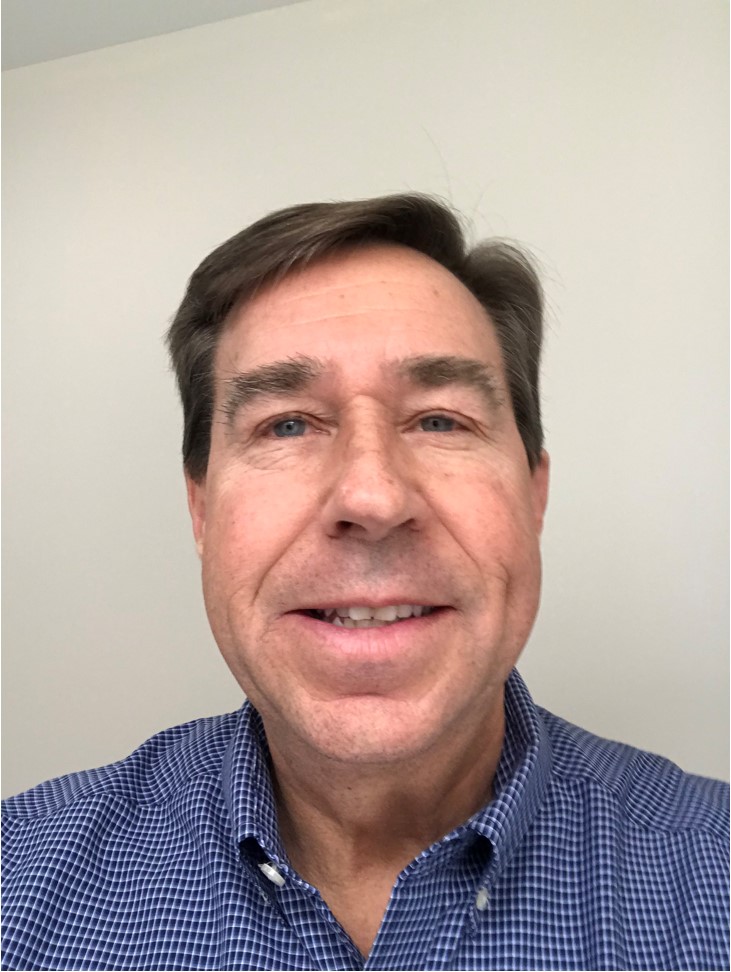
DG: Dan Gaiek from Livonia, NY is in his early-60s and began to experience symptoms in early 2011. He was officially diagnosed in 2012 after severe blood pressure, back pain that turned out to be compression fractures, a prostate cancer diagnosis, and finding out he was one of a very small number of reported cases in the US to have what turned out to be an ectopic pituitary tumor in the sphenoid sinus (below the pituitary). Dan’s case was so rare, there’s a paper on it! Scan the QR code or visit https://doi.org/10.1016/j.inat.2014.04.003 if you would like to read that. Unfortunately, Dan had extreme difficulties after his initial diagnosis, including time spent in the ICU and a nursing home, recurrences in 2014 and 2015, additional surgery, radiation, and treatment for prostate cancer. As of 2017 his cortisol and ACTH levels began to level out somewhat. Dan is currently on medical therapy.
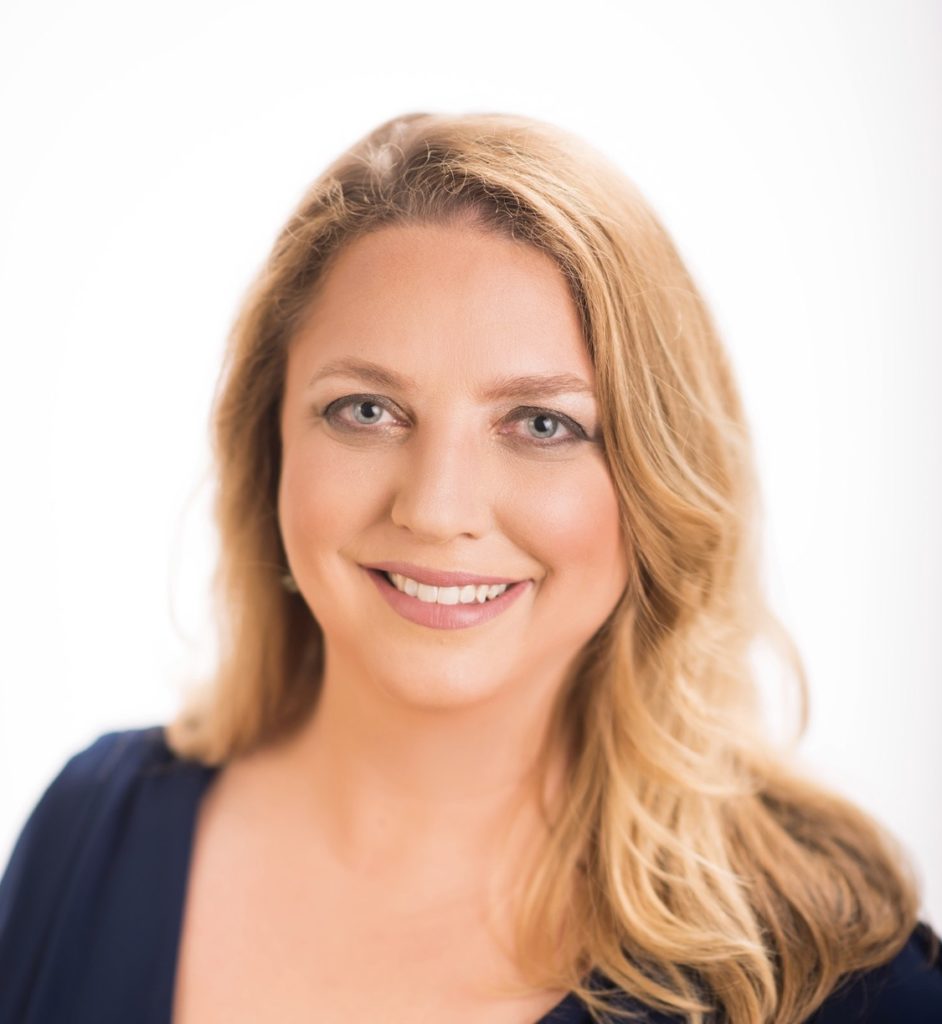
AD: Amy Dahm from Washington, DC is in her mid-40s and began to really notice ramped-up symptoms in 2012. It still took another year to get a conclusive diagnosis of cyclical Cushing’s by her endocrinologist (who had been an NIH Fellow), to go to the Mayo Clinic for a second opinion, and ultimately to have a unilateral adrenalectomy at NIH in 2014. Amy currently remains in remission but is dealing with side effects and comorbidities brought on by exposure to hypercortisolism.
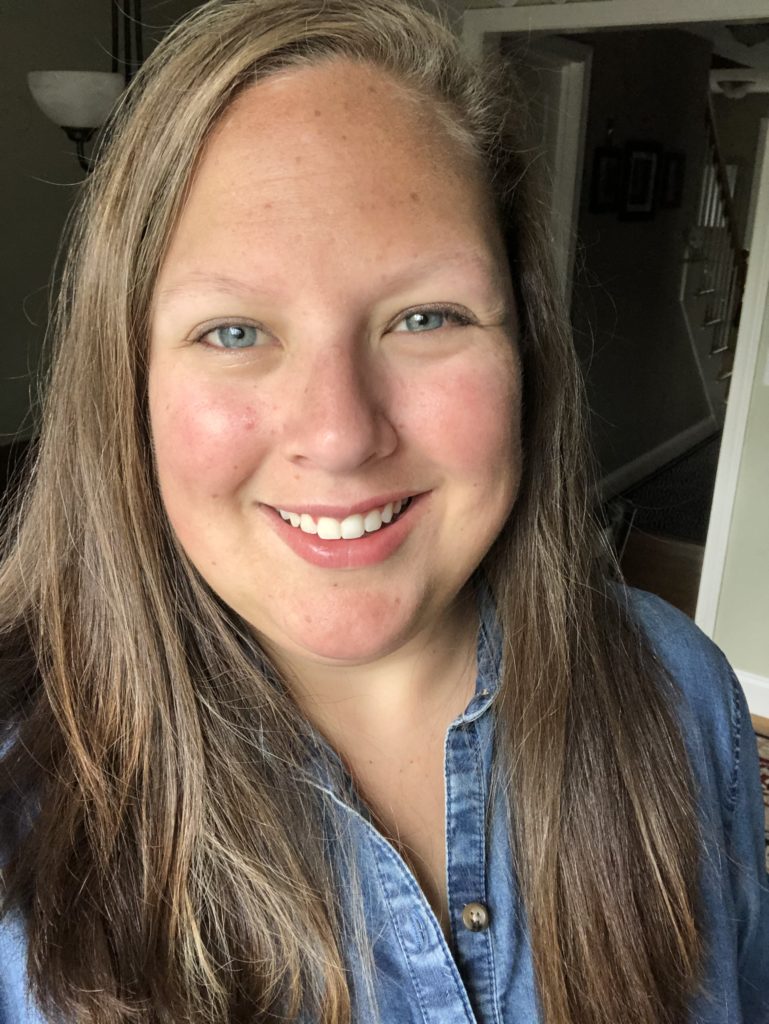
DR: Danielle Reszenski from Plymouth, MA is in her mid-30s and feels that she had symptoms throughout childhood that became worse after puberty. After two unsuccessful pituitary surgeries, Danielle had a bilateral adrenalectomy (BLA) in 2010 at age 24. A few years ago she was also diagnosed with Lupus.
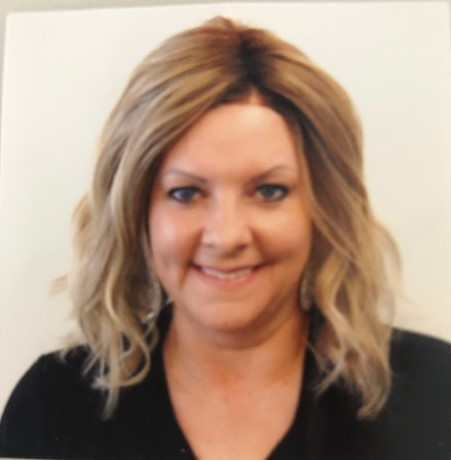
KJ: Karrie Julian started noticing symptoms in 2012. An impossible string of medical mishaps over the next 5+ years ultimately led to a Cushing’s diagnosis in early 2018 and pituitary surgery in April of that month. The past two years have remained difficult with mental health issues, extreme fatigue, and a dysfunctional thyroid.
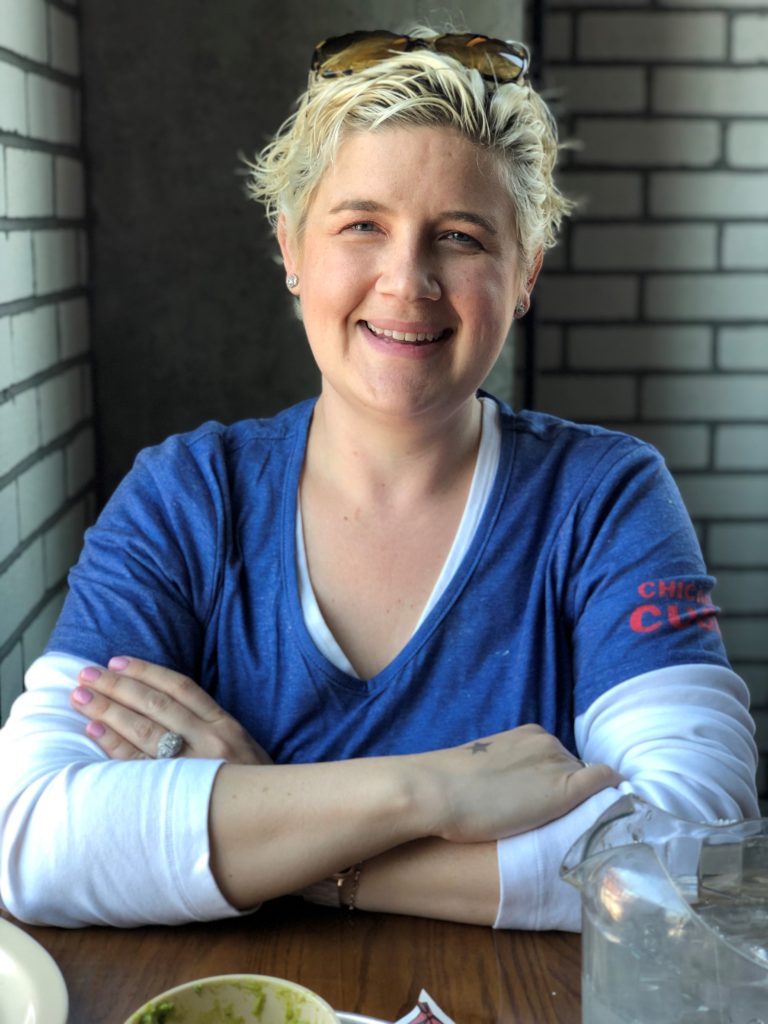
LK: Laura Kapur from Marietta, GA is in her mid-30s and started noticing symptoms in approximately 2011. Prevalent symptoms were mood-related, so she was treated by a psychiatrist. A few years later symptoms got much worse and she saw multiple specialists. After having gastric bypass in 2016 and seeing how the results caused Cushing’s symptoms to become overt, she was diagnosed in 2017 and had transsphenoidal surgery in 2018. She remains tumor-free.
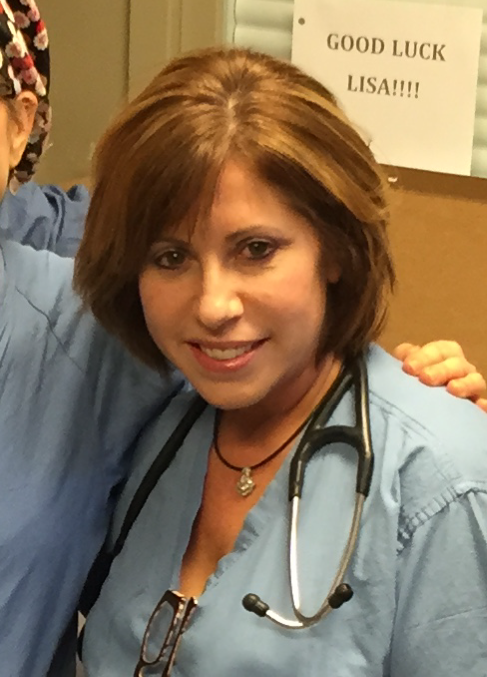
LW: Lisa Wollman from Boston, MA suspects she had symptoms going back before her second pregnancy about 20 years ago, but it was while pregnant that she really noticed symptoms. They were written off as consistent with pregnancy and sensitivity to body changes. After a first surgery 19 years ago and a recurrence 12 years ago, Lisa has remained in remission.
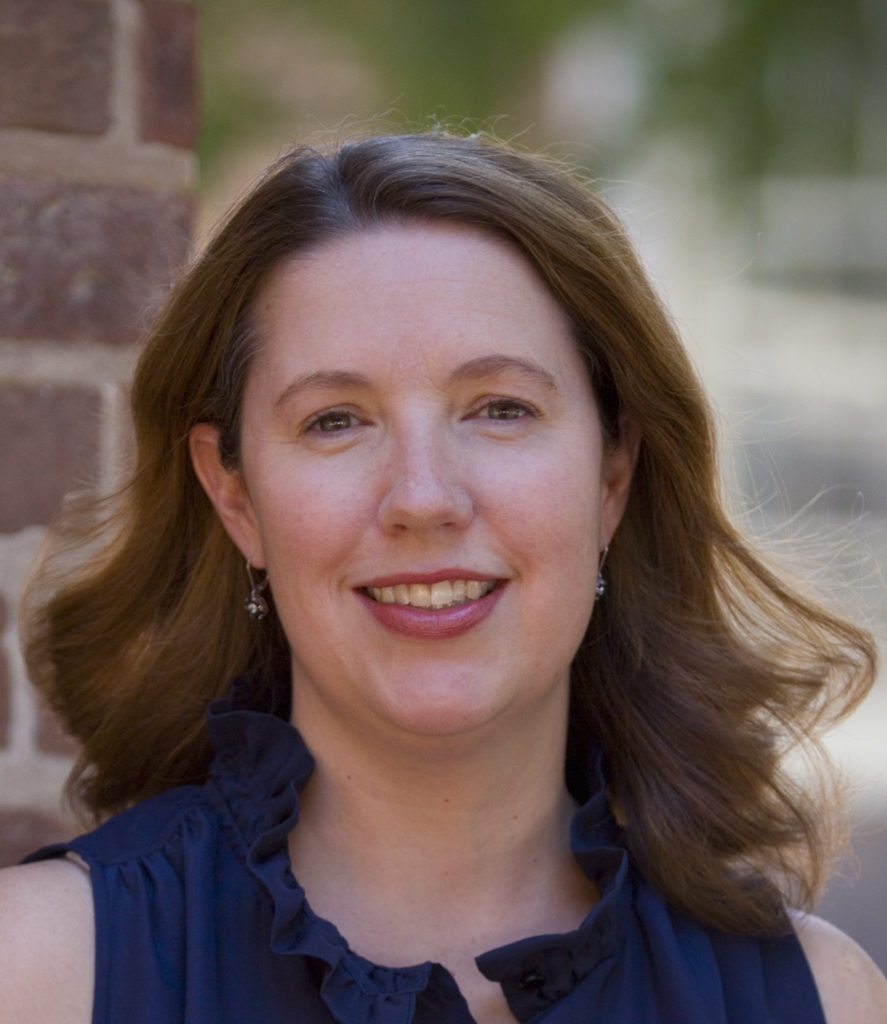
MM: Meggan in North Carolina noticed weight gain and extreme reaction to sun exposure in her mid-20s back in 2003. By 2006 her weight had continued to climb and her blood pressure was very high. It was written off and doctors only agreed to additional labs 18 months later when she’d gained another 20 lbs despite running five miles a day and restricting her diet to 1200 calories per day. Testing at the end of 2007 supported the diagnosis and she had pituitary surgery in 2008. She remains in surgical cure to this day and takes no replacement meds.
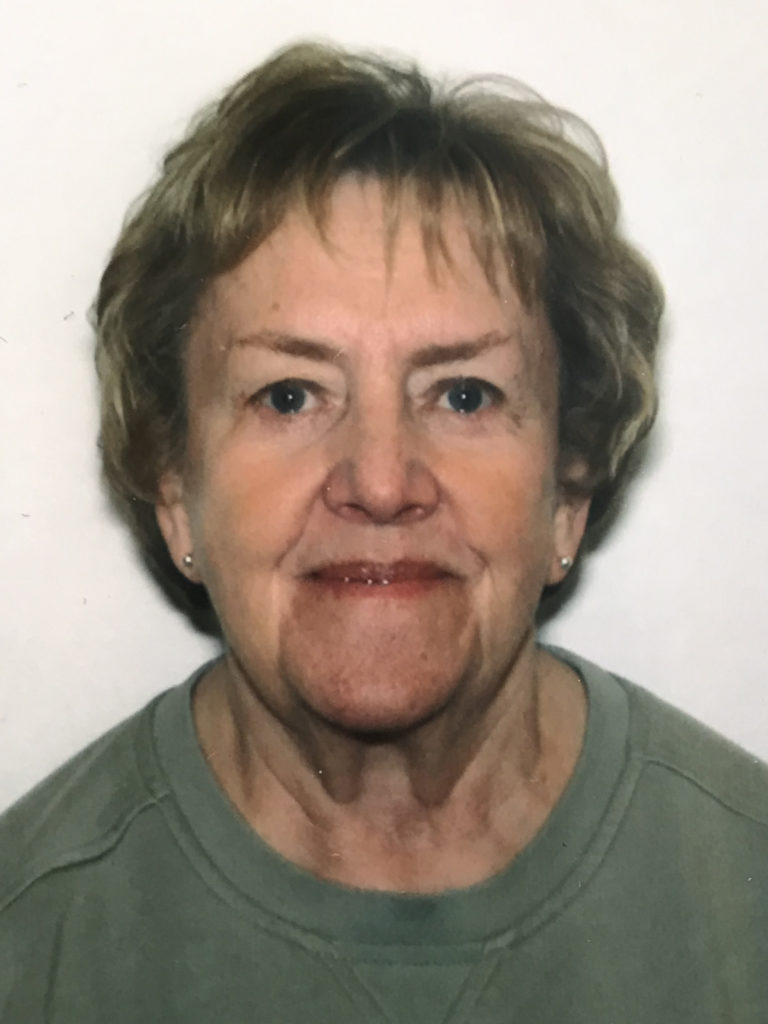
PB: Pamela Barrows, 74, from Minnesota, feels that her symptoms began to be overt in the summer of 2017 with a period of excessive heart rate, weight gain and distribution, and hair loss a few months after a back fusion surgery. For the previous couple of years, she had developed paroxysmal atrial fib, and less manageable hypertension. A month later thyroid function tests came back abnormal and Pamela was referred to an endocrinologist who performed the standard tests for Cushing’s. An MRI confirmed a pituitary adenoma, so she had surgery in February 2018. She developed adrenal insufficiency but was able to wean off steroids after a year.
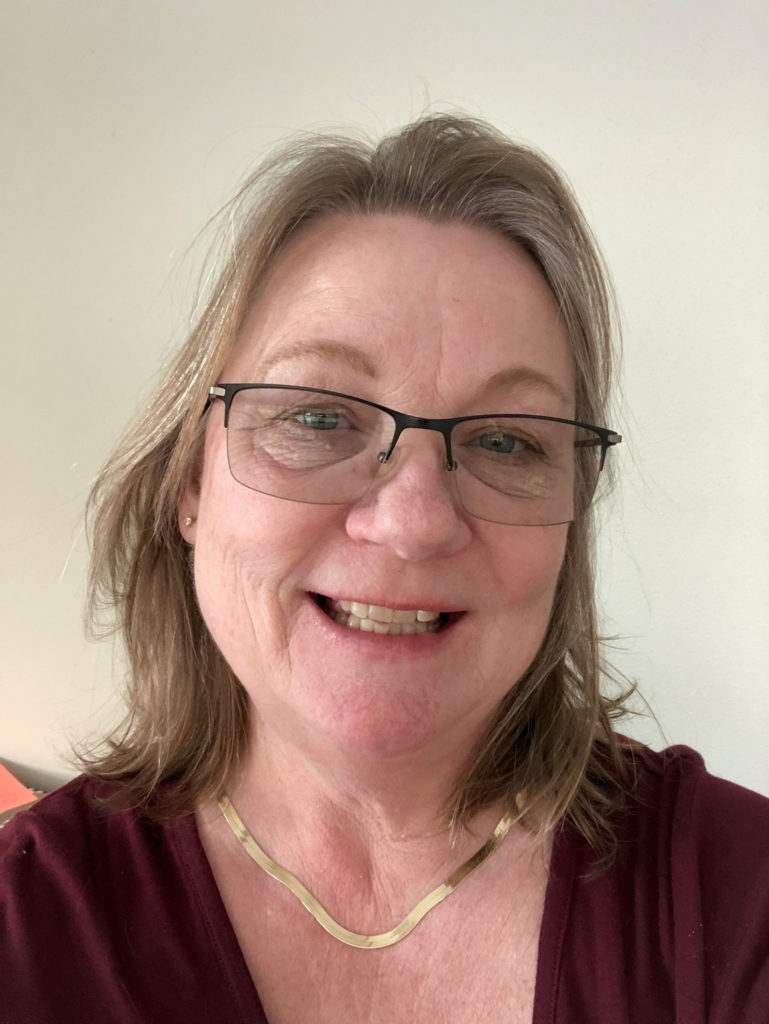
TB: Tricia Borchardt from Whitewater, WI noticed symptoms starting in 2003, but it took until Fall of 2010 to be diagnosed with a pituitary tumor. She had surgery in January 2011 and remained on steroids for about six years to avoid adrenal insufficiency. Tricia is currently in remission and only takes Synthroid.
The questions we asked:
Which doctors were involved in getting you to diagnosis?
CB: podiatrist, general practitioner, endocrinologist, radiologist, and ENT surgeon
DG: general practitioner, urologist, nephrologist, and endocrinologist
AD: gynecologists, internist, neurologists, GI docs, radiologists, dermatologist, ophthalmologists, ENT, cardiologists, therapists, complementary doctors, and a team of endocrinologists at three different institutions
DR: somewhere in the range of 15 total doctors including five or six endocrinologists and a gynecologist
KJ: somewhere in the range of 13 doctors to diagnose and four new ones post-surgery to manage symptoms
LK: psychiatrists, dermatologists, gynecologist, primary care, neurologists, endocrinologist, nutritionist, sleep specialist, chronic fatigue center, nephrologist, cardiologists, and an orthopedist
LW: obstetrician, psychiatrist, endocrinologist, sleep specialist, cosmetologist, dermatologist, and podiatrist
PB: primary care and endocrinologist
TB: neurologist, internist, cardiologist, general practitioner, gynecologist, dermatologist, optometrist, endocrinologist, and a few nutritionists
When you left the hospital / after your first treatment, what kind of follow up or treatment plan was initiated for physical and mental needs?
CB: Was given a pack of info for sick day dosing, a sinus rinse, a number to call for emergency or information, and pre-scheduled follow up appointments with surgeon and endocrinologist.
DG: Followed a quarterly testing and appointment schedule and communicated through a patient portal when needed. Mental support was not offered / recommended.
AD: While receiving treatment at NIH, had access to a speech pathologist, rehabilitation doctor, acupuncturist, physical rehabilitation therapist, vocational therapist, occupational therapist, psychiatrist, nutritionist, reproductive endocrinologist, and chaplain. After NIH, built a three-pronged plan involving internist for daily needs, endocrinologist for AI management and endocrine issues, and the NIH team for monitoring. Worked with a psychiatrist and therapist to process the trauma of two major illnesses and adaptations to a new life. Several nutritionists were ultimately unable to address specific issues because they admitted they did not have access to much information about our conditions.
KJ: Nothing was initiated. I had to figure it out and ask for labs every five weeks. Boston surgeon and endocrinologist put me back in the hands of my local providers and it took awhile to get in with the endocrinologist at UW Madison who has actually seen Cushing’s patients. She regulates pituitary and thyroid issues and my PCP handles antidepressants and blood pressure meds. I also see a psychiatrist for medication monitoring.
LK: I already had a mental health schedule and the endocrinologist scheduled regular follow up appointments.
LW: I did 24-hour UFCs every six months or so and saw my endocrinologist annually. MRIs were suggested but they never showed a lesion so I stopped having them. No mental support was ever offered or suggested, but I saw a private psychiatrist twice a month.
MM: Weekly check-in calls with a clinical nurse served as physical and mental health check-ins since I live four hours from my center. I had a follow up MRI six weeks post-surgery, then annual follow ups for labs the next two years. I didn’t ask for other support even though it was available. Looking back, I wish I had.
PB: Both of my doctors have been very good about working together on my case. Unfortunately, neither provided education nor monitored the impact of Cushing’s on my brain. Also, neither was aware of some of the helpful modalities to help with my lack of stamina and my muscle weakness.
TB: Six week post-op appointment with the surgeon, I don’t remember the endocrinologist post-op but do recall feeling like I was sent to surgery then forgotten about. I had no mental evaluation or suggestions to get any kind of mental or physical treatment.
Were you offered any clinical trials? If you were not offered a clinical trial, do you think you would have considered participating in one?
CB: I am participating in a general pituitary health research project at my hospital comparing healthy and unhealthy pituitaries.
DG: I would have considered a clinical trial if one had been offered to me.
AD: I was placed in the ongoing study at NIH.
DR: I tried getting into a trial for mifepristone but didn’t meet the requirements. If going through the process today, I would absolutely consider medications and clinical trials.
KJ: No, but I would have loved to have participated in one.
LK: I was not offered clinical trials and I’m not sure I would have needed them.
MM: I wasn’t offered a trial. With a confident surgeon, I was very optimistic about a surgical cure. It’s hard to speculate, but I think if I had not been a candidate for surgery then I would have pursued clinical trials.
PB: No clinical trials were offered but I would have been very happy to participate in one. I did respond to an online questionnaire done in Germany (observational study collaboration between CSRF and Dr. Ilonka Kreitschmann, published 2018).
TB: No, I was not involved in any and I don’t think I would have participated in any unless my tumor was inoperable.
Have you had to consider or take any of the medications available to us? Are you familiar with the Orphan Drug Act and “orphan drug” designation?
CB: Metyrapone
DG: Tried ketoconazole and it did not work. Currently on Metyrapone.
AD: No medication, but my advocacy work has exposed me plenty of times to the Orphan Drug Act and designation.
LK: I do know what orphan drugs are, but I have not needed one.
LW: I am familiar with the Act and designation but to date have thankfully not had to consider this.
PB: I am not familiar with the Orphan Drug Act. I did take ketoconazole for the last couple of months prior to my surgery.
Did you feel that your treatment team empowered you with all options or did they seem unsure about or unwilling to consider certain treatments?
CB: It took a repeat MRI requested by my ENT surgeon (after a first round of inconclusive scans) to make him comfortable to move forward with the surgery. My endocrinologist gave me a lot of information about the disease and what to expect / side effects.
DG: My Endocrinologist was great. She even came to the ER when I was admitted. She gave me options and asked other mentors for advice.
AD: My team presented all options but there was one clear path we all agreed on due to the variables.
DR: Due to the progression of my disease and severity of my symptoms, each time a decision needed to be made there seemed to only be one best option – surgery the first two times, then because I was young and very sick I decided against radiation (takes years to work) and opted for the BLA.
KJ: They all seemed unsure of the process. I would have benefited from having a champion who could have pulled all of this together.
LK: Absolutely! I had an excellent team that helped me with decisions. I had osteoporosis as a result of Cushing’s. I was given many treatment options and felt like Emory was up to date on the latest and greatest options out there.
MM: I felt pretty informed, and they were very confident that the surgery was the best option for me. I was very reassured by being at a trusted center for pituitary disease.
PB: As a retired nurse, I did a lot of my own research and all the physicians I encountered were receptive to my inputs and requests.
TB: Surgery was presented as the only viable option.
What role has peer support (groups, social media, patient-to-patient communication, etc.) played in your understanding of the process and recovery?
CB: Huge! It’s good to know what to expect, both good and bad, and to know there are others who understand what you are going through. It is reassuring to have other people who’ve had certain procedures tell you what to expect, as leaflets describing the process don’t really help a huge deal.
DG: Cushing’s Support & Research Foundation is a great support group. Patient’s Day was extremely helpful.
AD: Huge. Each group has a different “flavor” and provides different types of support. After surgery, a friend with adrenal insufficiency (AI) gave me a copy of “Living with Addison’s Disease” from the Addison’s Disease Self-Help Group (https://www.addisonsdisease.org.uk, or scan the QR code) and talked me through a period of low cortisol. Peers provide valuable feedback about the day-to-day challenges of living with Cushing’s and post-operative AI. In-person support groups and one-on-one meetings with other people with Cushing’s might be the most valuable to me – there is no other feeling like being with someone who gets it. Their experiences validate mine, and when I face challenges they empathize and share their best practices with me.
DR: I feel like it’s so validating to hear others’ stories about going through this. I love talking to people and am active online. I sometimes think those groups had a bigger part than any doctor in my recovery. Any random question like “did you experience this too?” will be answered in minutes, at any time of day. It doesn’t replace a call to your doctor, but it’s useful.
KJ: It has made all the difference. Unfortunately I didn’t find social support until after my surgery.
LK: I was fortunate to meet a former Cushing’s patient who met with me to talk through how I was feeling. This helped me a lot. I think more real person connection would be helpful. I also joined social media groups that were great in the beginning, but I feel that they could become negative and spend less time looking at them.
LW: Initially peer support was very helpful. Talking to others at CSRF and online was a lifesaver. Later I found that support groups don’t always tend to attract those with the good results and positive experiences, so I backed away.
MM: I can’t put a value on peer groups other than to say I’m continuously humbled by each person’s empathy for me. They were so kind when I was feverishly searching for info when my labs first came back abnormal. They were a source of feedback post-op that confirmed so many of my post-op struggles and emotions were normal.
PB: Very little. I had to find out about Cushing’s support groups online on my own and the information is dated.
TB: Peer support has helped tremendously post-surgery during the recovery and post-recovery period. I had very little time between learning about the disease and my surgery but did find CSRF and have one person who had been through Cushing’s call and mentor me pre-surgery. It was awesome!
How are you doing now after the time that has passed since your initial treatment? Have you had a recurrence or do you remain in remission? If before Cushing’s you were at 100% physically and mentally, what percentage would you say you’re at now on each of those?
CB: Have been in remission for four months as of February 2020. Walking is easier, pains have died down somewhat. Blood pressure massively improved, down 38 lbs. Physical appearance is much improved and sleeping through the night. Back to 80% mentally, about 30% physically.
DG: Recurrence and surgery in 2014, recurrence and radiation in 2015. Back to 90% mentally, 75% physically.
AD: I’m doing ok and still adapting to life post-Cushing’s. I medically retired from my job in 2017. According to my doctors I am in remission, but I still have symptoms and issues that linger and impact my daily life in a profound way.
DR: I would say I’m not doing that well, but I know so many who are worse off. I survive. I’ve had many mental and other physical health issues that I’ve had to fight through which has been extremely difficult. I don’t remember a time without Cushing’s because it started so young.
KJ: I remain in remission and am at about 80% both mentally and physically. I struggle with insomnia, endocrine problems, upper back pain and stiff joints in my right hand, stiffness upon waking, and keeping spirits up. I’m still on hydrocortisone and take several other meds for thyroid and blood pressure.
LK: I am almost 2 years post-surgery and tumor-free. I am physically back to 90% (my osteoporosis, which caused most of my pain, has been cured). Mental is the harder part. I think at best I am 70% of what I was. I have a lot of short term memory problems and trouble multi-tasking.
LW: I’ve been in my second remission about 12 years now. It’s hard to assign a percentage because I’ve had a baby and gone through menopause since my diagnosis. I would say that I am at 80% physically and mentally. I never got back to a totally normal stamina, sleep pattern, or body shape and weight. Mentally I have never recovered my ability to learn new complex things or remember names and references like I used to be able to do.
MM: I have been so lucky and blessed to remain in remission for over 11 years now. I am probably at 85% physically. I was never able to get back to the lean person I was pre-Cushing’s. I lost a lot of weight, but the muscle wasting remained. My bones are also older than normal for my age. Mentally, I’m 95%. I’m not as quick or sharp, but I’m pretty close.
PB: Frustrated that I am still limited in my physical ability to do the things I want to do because of the stamina and back muscles not fully recovering from the back surgery I had 10 months before my Cushing’s surgery. I’m at about 50-60%. My low back, hips and thighs still bother me a lot. I also have a lot of stiffness when getting up after sitting.
TB: Eight years post-surgery, no recurrence, energy levels improving each year (especially since I’ve been able to wean off the steroids). I’d say I’m about 95% physically and 65% mentally. I still have memory issues, difficulty focusing, making decisions, feeling true emotions and finding words, holding conversations. I am easily irritated.
What have you discovered about the long-term effects of having Cushing’s that you weren’t told during treatment? What “surprises” have come up that you weren’t prepared for?
CB: The mental side of things was very unexpected – the brain fog, stuttering speech, memory loss, and mood swings. I was not prepared for the damage it does to bones and mobility – I didn’t expect to end up on crutches. The discomfort of withdrawal is a shock. Mental side effects remain – I thought I was ready to return to work but upon assessment it was determined that I needed a little more time. I’m still sick and I’m fed up with it, despite thinking I’d made peace with this journey. I’ve also developed a hernia because of the excess weight, and other unrelated conditions have gotten worse and now require surgical treatment (ex. cubital tunnel syndrome).
DG: I was surprised that Cushing’s affects the brain and a full recovery will not happen. I also did not know that radiation takes two and a half years on average to kick in. Another surprise was the withdrawals. I had aches, joint pain, and did not want to eat or drink anything for around 4 months. Nothing tasted good, not even water.
AD: I didn’t realize that Cushing’s is the gift that keeps on giving, and that so many of the effects linger over time and actually produce new health issues. Patients who have experienced hypercortisolism are more susceptible to cardiovascular and autoimmune issues. I never thought I’d actually have to leave my job. I didn’t think post-surgery could ever be harder than diagnosis or treatment, but it can be. I truly expected my symptoms to resolve once the cortisol was under control. Another aspect that I did not expect was how much time I would spend trying to validate my illness and experience to others, and the wide range of biases that doctors can have that can literally lead to a delay in or refusal of life-sustaining treatment.
DR: Mental health was a big one for me. I always assumed after treatment I would feel better, not just physically but mentally. That hasn’t happened. It’s been worse.
KJ: Living with replacements is NOT the same. I didn’t expect the impact of cognitive decline, a shortened lifespan, and long-term bone density decline.
LK: I really thought my body would start producing cortisol again, but it has not yet and apparently that is a good thing. I’m also surprised about my mental capacity. This is a VERY hard part for me. My doctor said sometimes those parts don’t come back and that was something I was not prepared for. Also, going through the life change of NOT being sick anymore is hard. You got so used to always feeling terrible, not socializing, because you were so exhausted, that it’s almost like you have to start all over again with friends. Going back to work was hard too, and a therapist helped with that.
LW: Memory issues, PTSD, permanent body composition changes.
MM: The long-term inability to build and retain muscle is hard. I’m still 20 lbs heavier than I would like to be and I lack the energy and strength I had before Cushing’s. They told me it would be different, but I just wasn’t personally prepared for this. Hearing about and experiencing the post-op fatigue are not the same. I also had a lot of post-op itching. Discussion boards said it was normal but my medical team did not emphasize it.
PB: The length of time to start to feel like oneself. Other than depression, I was not aware of nor told about the potential cognitive and memory decline Cushing’s might cause. As my body changed pre- and post-adrenal insufficiency, I regressed to almost my pre-surgery self and I don’t think true recovery started until I was able to wean off the steroids.
TB: Recovery takes a long time. The mental and emotional damage aren’t treated or acknowledged.
What advice would you give people who suspect Cushing’s and are waiting for an appointment or conclusive testing?
CB: Only read official and scientific sites for information, and remember that patient stories are incredibly helpful but are just that, a patient’s individual experience and will differ for everyone. Gather all your symptoms into a notebook, get before and after pictures with timelines and keep food/exercise diaries to prove weight gain isn’t just being greedy or lazy. Above all, advocate for yourself and if something doesn’t feel right then keep pushing.
DG: Be persistent, the process is slow and takes time.
AD: Educate yourself as much as possible. This is a case where you need to be more educated than your doctor. Only look at excellent, medically-vetted research such as that at CSRF. Also:
- Try to find a Cushing’s expert that has prior experience with a wide range of Cushing’s patients. You want a surgeon in a high-volume center who has done thousands of surgeries. Expertise and experience directly impact success and remission rates.
- If you are not gaining traction with a doctor, don’t waste time. Switch. Confident doctors welcome second opinions.
- Create your own A-Team. This is a world-class illness and you need the best doctors and resources available to improve your chances of a successful recovery.
- There are resources available to help pay for transportation, diagnostic tests, medications, etc. Use them!
- Strive for balance, don’t try to override your body. Re-draw your life to fit within the parameters of your “new normal” rather than trying to force yourself into a lifestyle.
- It’s ok to “sample” an activity – don’t stay four hours at the party, go for 20 minutes. People will respect boundaries if you vocalize them.
- When you can, give back to the Cushing’s patients who are still struggling.
DR: Be persistent, the process is slow and takes time. It is good to have a caregiver go to appointments with you since your mind is not 100%. Speak up if your symptoms reoccur.
KJ: Educate yourself as much as possible and don’t settle for a physician or surgeon who’s only seen a handful of cases in their career. Take someone with you to appointments to help catch all the details.
LK: Find an endocrinologist with experience. Push doctors to run tests. Do not give up. You might see many doctors who do not immediately put all the details together, so you need to be your own advocate. They can only work with what you tell them. Keep a tracker of all symptoms. I also found it useful to bring my mother to appointments because I wasn’t always good at explaining my symptoms. If you suspect Cushing’s and testing does not support that, do not give up on finding out what IS causing your health issues!
LW: Be persistent with doctors – don’t let yourself be dismissed. Keep a journal of symptoms and questions. Reach out for peer support! Trust your instincts.
MM: Don’t panic – the worst case scenario is NOT the norm. Find an experienced center with a Cushing’s-focused clinic. I am 100% convinced that it is the reason for my successful outcomes. Finally, embrace support and advice from your surgeon and endocrinologist, nurses, and other patients. The sources all add rich pieces of information that help you “complete the picture” of what to expect.
PB: Have a knowledgeable advocate and don’t back down from demanding reasonable answers.
TB: Give yourself time, don’t expect to “go back to normal”. This is a life-changing disease. Life can be wonderful but it won’t be the same. Request help with physical and mental issues you may have. What may work for one person may not work for you. Always get a second or third opinion if you don’t like the answers you get.






Sorry, comments are closed for this post.